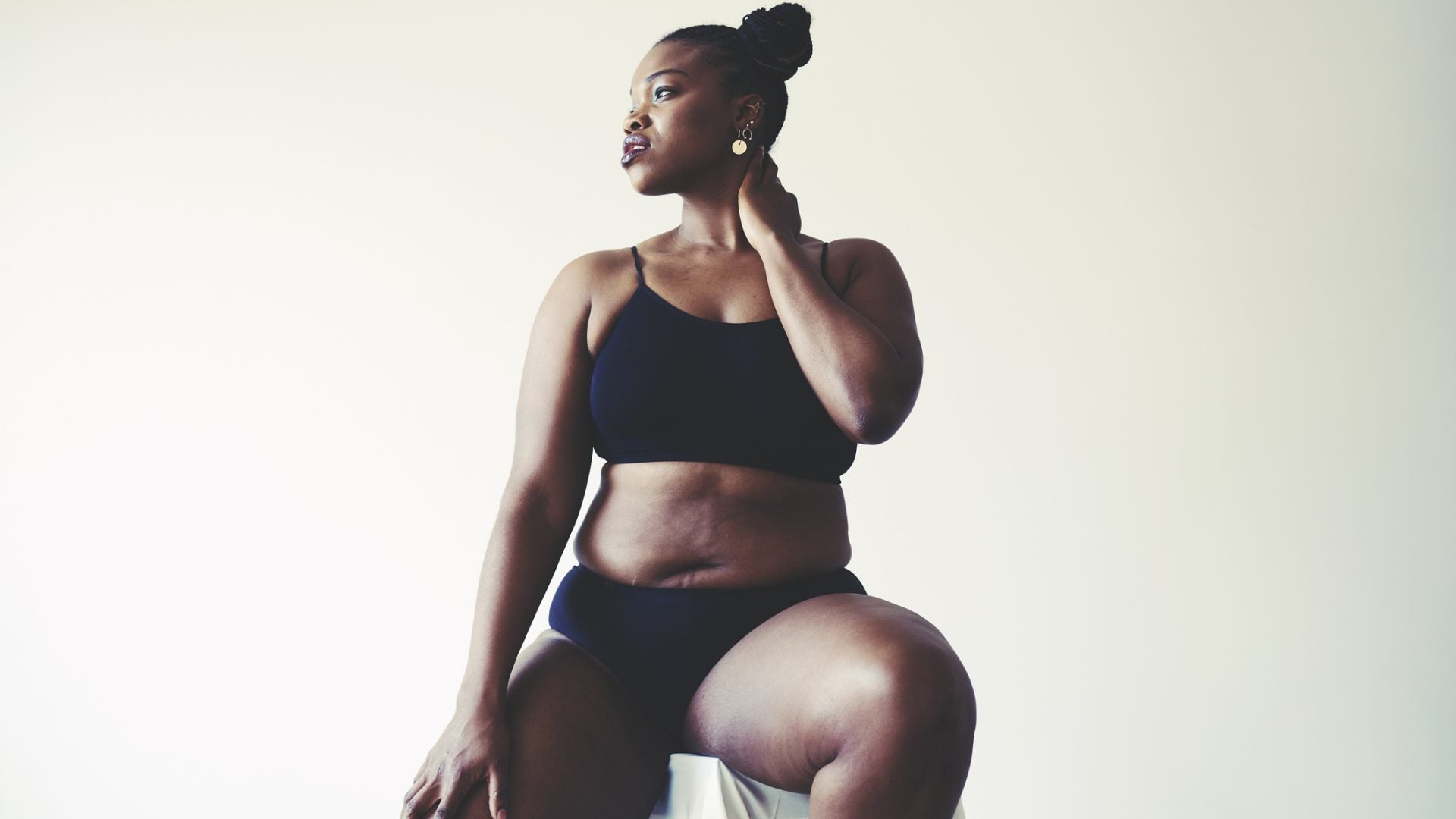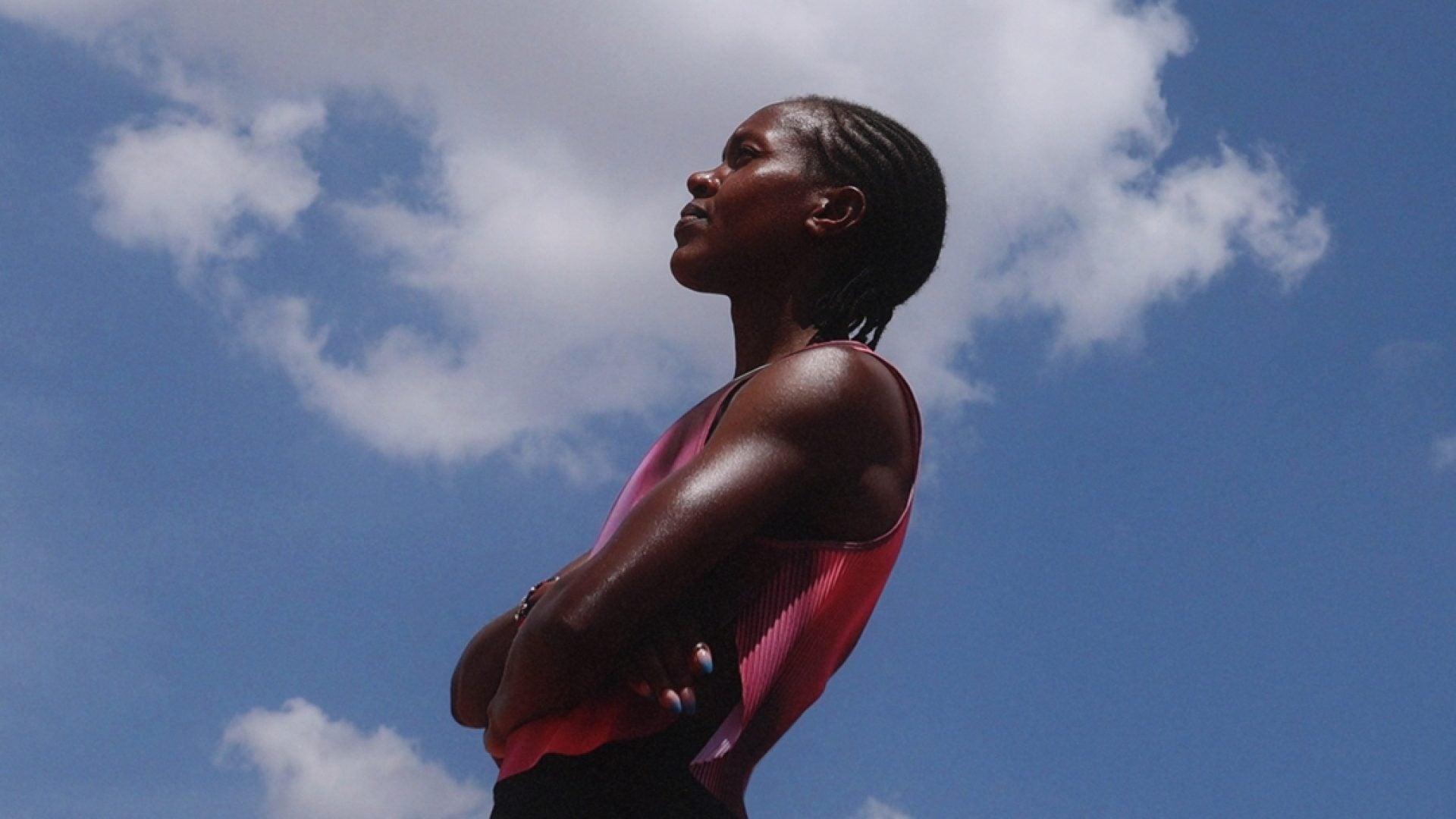
Self-love is the best love, they say. However, learning to look in the mirror and love what you see can be more challenging than it seems, even on our best days. Paula Edwards-Gayfield, licensed professional counselor and certified eating disorder specialist, regional assistant vice president at The Renfrew Center and contributor to the book, Treating Black Women with Eating Disorders: A Clinician’s Guide, says it’s deeply complex. Body image encompasses not just what we see but also the beliefs we carry about ourselves—many influenced by the traditional media, advertising, social media, and even our families.
For Black women, this is often a layered experience beyond weight. “As much as I believe that we as Black women and people of color are increasingly accepting of the diverse [body] images, we continue to be influenced by various sociocultural influences,” she tells ESSENCE.
So as we walk into this year, how can we center learning to love ourselves, while acknowledging the things that make us feel self-conscious without going into overdrive to “fix” or change who we are?
Well, the answer to that question is complex. However, there are a few things Edwards-Gayfield and registered dietitian nutritionist Marisa Moore say we can do to jumpstart our journeys.
Explore your internal messaging.
Negative self-talk can be challenging to combat. But what if, instead of swatting it away, we got curious? Edwards-Gayfield says asking questions can give us a bird’s eye view of what impacts how we see ourselves and care for our bodies. “Ask yourself what else is going on here,” she says. “Where is the message coming from that I must or need to change some aspect of me? You can get the results if you’re looking for a quick fix. But what may have been influencing that will still be present.”
Work with a professional.
Inner body image challenges typically do not simply vanish because you’ve reached a goal. “If you’re experiencing any negative body image, it involves feelings of shame, anxiety, and self-consciousness,” Edwards-Gayfield says. “But working with professionals who are aware of body image [issues] and not pushing diet mentality, [can be helpful].”
For example, a therapist or registered dietitian can dispel diet culture buzzwords like cheat days, clean eating, no carbs, etc., that encourage restrictive eating habits. As Edwards-Gayfield put it, “There are no good foods and bad foods. There’s balance.”
Additionally, Marisa Moore, a registered dietitian nutritionist, says she encourages clients to focus on health, not weight. “Healthfulness is not magically achieved at a number on the scale.” And much of this obsession with weight, she says, is rooted in diet culture and obtaining a thin ideal. “Learning to enjoy food without restrictions is a big step in dismantling that mindset and accepting and loving our bodies.”
Plan meals mindfully and put your health—not your weight—first.
“When it comes to lifelong health, consider markers including your blood pressure, blood glucose, blood cholesterol, mental health, sleep quantity and quality, and physical stamina,” Moore advises. For Black women, this is especially important as high blood pressure, diabetes, and other health ailments can affect our overall health and quality of life. And mindful eating can be a tried-and-true tool.
“Mindful eating can help you get to know your hunger,” Moore tells us. [This is] a powerful and necessary skill to move beyond calorie counting and tracking to define how, when, and what you eat.” She also shares that this can help meals become a more memorable experience. “Mindful eating helps you enjoy all aspects of eating,” she shares. “You savor the flavor, texture, and aroma of your food. And you are tuned into how your body feels before, during, and after you eat.” Best of all, she says you get to know what makes you feel satisfied and, alternatively, what leaves you wanting more.
Remember, everyone’s body is different.
“Not everyone’s body is supposed to be the same,” Edwards-Gayfield shares. And this is true, even if that social media influencer or celebrity tells you precisely what they’re doing to achieve their results. She says you can see what your body is truly capable of by leaning into balanced nutrition and activity, rather than exercise.
“Exercise can become this routine and be this arduous process,” she says. “Instead, think about what you enjoy doing, and have fun.”





